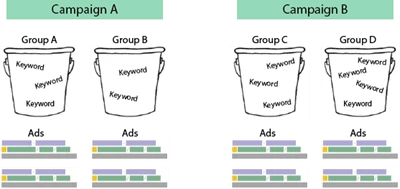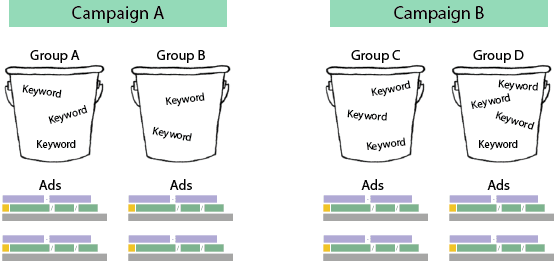
Indoor signs

2/15/2018
Image360-Philly is a franchise with many marketing resources that we are lucky enough to have access to. Even with those resources we often find there may be confusion on what the best choices may be for our specific location.
Recently, we’ve focused on maximizing our current pay-per-click (PPC) program. While doing our due diligence we spoke with numerous other owners and marketing consultants regarding PPC.
What follows is some of the critical information we found necessary to know, such as; what PPC is, how it works, how to understand the results, and how to make the most of your spending.
All of this is much easier said than done, but if you want a better return-on-investment for your current program or want to invest in one, it’s smart to learn the basics.
What is PPC Advertising?
PPC (Pay-Per-Click) is a form of advertisement that directs a user to a website by clicking on an advertisement that the website owner pays for. For example, when someone is searching on google there will be links with an [AD] symbol displayed next to it, this is a paid advertisement; every time someone clicks on that advertisement it charges the website owner.
There are also advertisements on the top/side/bottom of websites that are clickable to drive through to a website, this can also be a form of PPC (depending how the ad is set to be paid for).
Is it right for my small business?
The answer to this is always yes, PPC is always a benefit when done well.
I’m not sure who said “you have to spend money to make money,” but they’re completely right in this context. If you’re not taking advantage of PPC you’re losing out on bigger opportunity for your business.
How does PPC work?
First you have to identify your business goals; what are you selling or providing? This will help you build your advertising “buckets.”
When explaining the structure of PPC I always use the term “buckets” as a way to describe the sorting of business goals.
Here’s an example of a business goal:
Ex. John owns a sporting goods store and sells a lot of sports gear. He wants to promote cleats and shin guards because soccer season is getting close.
John would have a campaign set up for cleats and a campaign set for shin guards. Within those campaigns he would have groups for the different types of cleats or shin guards. Inside of the group “buckets” he would have keywords to match those groups.
This example could look something like this:
Campaign – Cleats
Groups – Firm ground cleats | Soft ground cleats
Keywords for Firm ground cleats: firm ground cleats, “firm ground cleats”, firm+ground+cleats
Keywords for Soft ground cleats: soft ground cleats, “soft ground cleats”, soft+ground+cleats
Here’s a visual to show how these campaigns would be organized:

What do you have to know when reviewing your results?
Simply put, the more relevant your words are to your ads & the more relevant your ads are to the page that it directs to, the more relevant your ad will be – therefore it will improve your quality score.
Quality score is what determines the cost per click (CPC). This is what adds up to the total you pay on your PPC campaigns. The higher the quality score the less the cost is. Google does this in order to better serve its searchers, to ensure that they’re getting the right solutions to their searches as fast and efficiently as possible.
It’s also important to review your campaigns to make sure that they’re serving your current business goals. Here are points that you should pay attention to:
How do I know if I’m getting the most out of my PPC campaigns?
A good PPC consultant will take the results and translate them to you in an understandable way, but here are some tips if you’re left to fend for yourself.
Here are some additional tools and links that will help you understand your results:
Here are some other great tools to use if you want to check how well your PPC is doing:
https://www.google.com/analytics/ ß Google Analytics will show you how well your PPC campaign is doing compared to all of your other marketing efforts and can also show you what keywords are driving the most traffic to your website.
https://www.semrush.com/ ß SEMrush can be used to search the success of the keywords you’re currently using and to find what people are searching to get to your website.
The more you know the more you’ll benefit.
Hopefully this blog post increased your understanding of PPC and what you should know if you’re contracting someone to manage it for you or if you’re looking into managing it yourself.
In the case that you’d be interesting in learning more about PPC, I would highly recommend taking the Google AdWords Certification – it’s not too lengthy in comparison to other certifications, there are a bunch of videos and helpful PDFs provided by Google to help you better understand how the process works. This is a free exam and only requires you to take 2 exams in order to become certified, and you get to choose which test you do for the 2nd exam!
Here’s the link to learn more about the certification: https://support.google.com/partners/answer/3154326?hl=en